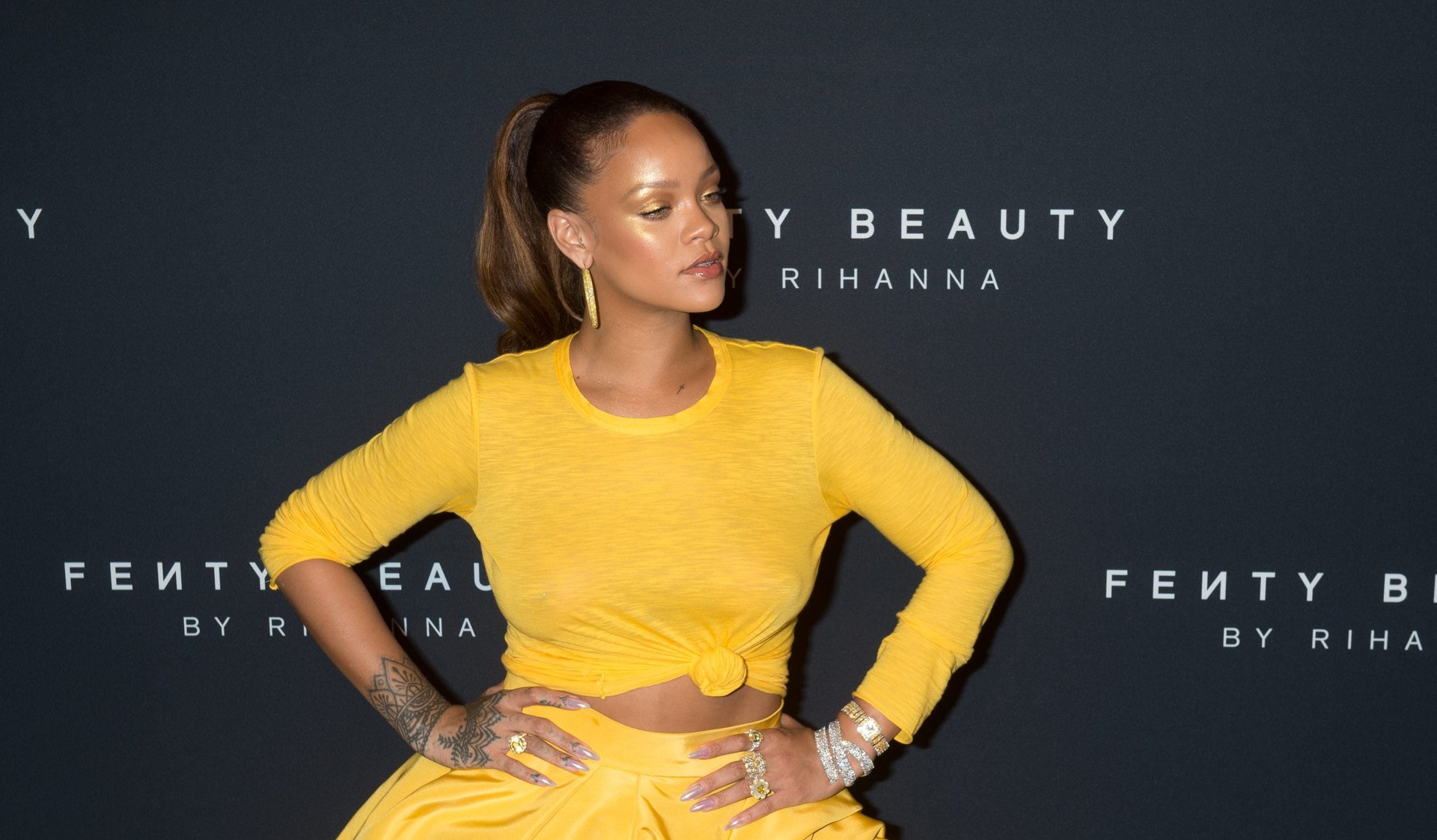Rihanna’s makeup is a wild success because it was actually made for dark-skinned women
White skin has been treated as the standard for so long in the US and Europe that only recently have the big makeup labels seriously begun developing products specifically for black and brown women.


White skin has been treated as the standard for so long in the US and Europe that only recently have the big makeup labels seriously begun developing products specifically for black and brown women.
Yet even as more brands turn their attention to customers of color, shoppers with darker skin tones can still have difficulty finding shades that match them. Even when the products are out there, it might require serious effort to find them amid the glut of other makeup. Last year, Clover Hope, in Jezebel, described needing a beauty-blogger friend during a trip to Sephora to guide her through the ocean of cosmetics to those few that would work for her.
“The problem I and many other women of color face on a regular basis is surviving that experience again and again, in an industry where makeup is predominantly default white,” she wrote. “This is not a new dilemma at all, as much as it is a constant cycle of exclusion and expected inefficacy with occasional outliers.”
Perhaps that’s why there’s been a rush on the darker shades in Rihanna’s new Fenty Beauty line, which debuted at Sephora on Sep. 8. Before the line launched, Rihanna confirmed it would include 40 different shades of foundation, giving it one of the most diverse color ranges on the market. As The Cut reported, the darker shades have been selling out, and Sephora stores say they have to work fast to keep the products in stock.
The indication is that there’s still room in the beauty market for plenty more makeup aimed at women with darker skin tones, especially when it’s clear that finding the right color won’t be like tracking down a needle in a haystack. (Sephora declined to comment for this story.)
The beauty industry has been catering to women of color more as it searches for sales beyond the white shoppers it has historically focused on. ”The next wave of growth is expected to emerge from extending solutions to consumers of all other ethnicities,” research provider Euromonitor noted in a report last year on the multicultural beauty market.
But progress has been slow, particularly when it comes to foundation that suits the full variety of skin tones among black women. “A cosmetics company needs to dedicate a lot of resources to successfully create products for a new market segment,” Karen Grant, the former beauty-industry analyst at research firm NPD Group told FastCompany in 2015. They need to sink funds into research, testing, and marketing. The accepted wisdom has long been that, at least in the US, black women wear less makeup, making companies more hesitant to invest in them.
But the logic may be circular. They may not wear makeup as much as other races because most makeup isn’t made for them.
Creating foundation for darker skin tones isn’t as simple as just darkening the colors in a product developed for lighter skin—an approach that has led to lots of unsatisfactory makeup for women with darker skin in the past. L’Oréal chemist Balanda Atis recognized this problem some years ago, back when she was developing mascara for the company. In her experience, the makeup that existed for dark-skinned women was often too red or too black. The colors didn’t work as they should, so she set out to create better foundations for dark skin.
“We noticed that there was an area of violet in darker skin tones that had not been understood in the past,” she explained to Allure earlier this year. “We ended up incorporating ultramarine blue, which takes you deeper but not necessarily blacker.” She ultimately became the manager of L’Oréal’s Global Women of Color Lab.
The situation isn’t too far from the one Insecure cinematographer Ava Berkofsky encountered in film school. No one, she told Mic recently, “ever talked about lighting nonwhite people.” But film, like makeup, is all about working with color and light, and conventional lighting methods based on light skin didn’t work as well for dark skin. She realized a new approach was necessary.
The success of the darker shades of Fenty Beauty likely has something to do with the fact that it’s Rihanna’s line. She’s a massive celebrity, and when she launches a product, people buy it.
But the reason shoppers have responded so strongly is likely also because they felt Rihanna genuinely believes in being inclusive. “I think Rihanna’s brand promotes the whole notion of multiculturalism and positions itself as such in Prestige makeup directly targeting that market,” says Naira Aslanian, project manager at research firm Kline Group. “Again, with 40 shades of foundation, the products start with lightest shade and include darker shades.”
By contrast, when people thought that Kylie Jenner’s cosmetics line was opportunistically using the Fenty Beauty launch to promote its far less extensive range of makeup for darker-skinned women, they pounced.
Rihanna let it be known from the start that her makeup was meant for a wide range of skin tones. Dark skin isn’t monolithic, anymore than light skin is. It’s a spectrum. Fenty Beauty reflects that range, and it’s being rewarded.